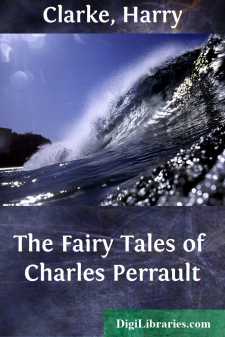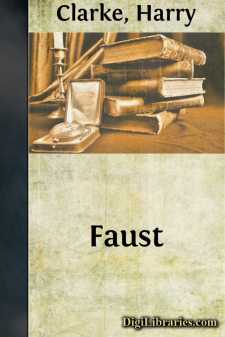Categories
- Antiques & Collectibles 13
- Architecture 36
- Art 48
- Bibles 22
- Biography & Autobiography 813
- Body, Mind & Spirit 142
- Business & Economics 28
- Children's Books 14
- Children's Fiction 11
- Computers 4
- Cooking 94
- Crafts & Hobbies 4
- Drama 346
- Education 46
- Family & Relationships 57
- Fiction 11829
- Games 19
- Gardening 17
- Health & Fitness 34
- History 1377
- House & Home 1
- Humor 147
- Juvenile Fiction 1873
- Juvenile Nonfiction 202
- Language Arts & Disciplines 88
- Law 16
- Literary Collections 686
- Literary Criticism 179
- Mathematics 13
- Medical 41
- Music 40
- Nature 179
- Non-Classifiable 1768
- Performing Arts 7
- Periodicals 1453
- Philosophy 64
- Photography 2
- Poetry 896
- Political Science 203
- Psychology 42
- Reference 154
- Religion 513
- Science 126
- Self-Help 84
- Social Science 81
- Sports & Recreation 34
- Study Aids 3
- Technology & Engineering 59
- Transportation 23
- Travel 463
- True Crime 29
The Fairy Tales of Charles Perrault
by: Harry Clarke
Categories:
Description:
Excerpt
INTRODUCTION
"Avec ardeur il aima les beaux arts."Griselidis
harles Perrault must have been as charming a fellow as a man could meet. He was one of the best-liked personages of his own great age, and he has remained ever since a prime favourite of mankind. We are fortunate in knowing a great deal about his varied life, deriving our knowledge mainly from D'Alembert's history of the French Academy and from his own memoirs, which were written for his grandchildren, but not published till sixty-six years after his death. We should, I think, be more fortunate still if the memoirs had not ceased in mid-career, or if their author had permitted himself to write of his family affairs without reserve or restraint, in the approved manner of modern autobiography. We should like, for example, to know much more than we do about the wife and the two sons to whom he was so devoted.
Perrault was born in Paris in 1628, the fifth son of Pierre Perrault, a prosperous parliamentary lawyer; and, at the age of nine, was sent to a day-school—the Collège de Beauvais. His father helped him with his lessons at home, as he himself, later on, was accustomed to help his own children. He can never have been a model schoolboy, though he was always first in his class, and he ended his school career prematurely by quarrelling with his master and bidding him a formal farewell.
The cause of this quarrel throws a bright light on Perraults subsequent career. He refused to accept his teacher's philosophical tenets on the mere ground of their traditional authority. He claimed that novelty was in itself a merit, and on this they parted. He did not go alone. One of his friends, a boy called Beaurain, espoused his cause, and for the next three or four years the two read together, haphazard, in the Luxembourg Gardens. This plan of study had almost certainly a bad effect on Beaurain, for we hear no more of him. It certainly prevented Perrault from being a thorough scholar, though it made him a man of taste, a sincere independent, and an undaunted amateur.
In 1651 he took his degree at the University of Orléans, where degrees were given with scandalous readiness, payment of fees being the only essential preliminary. In the mean-time he had walked the hospitals with some vague notion of following his brother Claude into the profession of medicine, and had played a small part as a theological controversialist in the quarrel then raging, about the nature of grace, between the Jesuits and the Jansenists. Having abandoned medicine and theology he got called to the Bar, practised for a while with distinct success, and coquetted with a notion of codifying the laws of the realm. The Bar proved too arid a profession to engage for long his attention; so he next sought and found a place in the office of another brother, Pierre, who was Chief Commissioner of Taxes in Paris. Here Perrault had little to do save to read at large in the excellent library which his brother had formed.
For want of further occupation he returned to the writing of verse, one of the chief pleasures of his boyhood. His first sustained literary effort had been a parody of the sixth book of the "Æneid"; which, perhaps fortunately for his reputation, was never published and has not survived. Beaurain and his brother Nicholas, a doctor of the Sorbonne, assisted him in this perpetration, and Claude made the pen-and-ink sketches with which it was illustrated. In the few years that had elapsed since the writing of this burlesque Perrault had acquired more sense and taste, and his new poems—in particular the "Portrait d'Iris" and the "Dialogue entre l'Amour et l'Amitié"—were found charming by his contemporaries....



